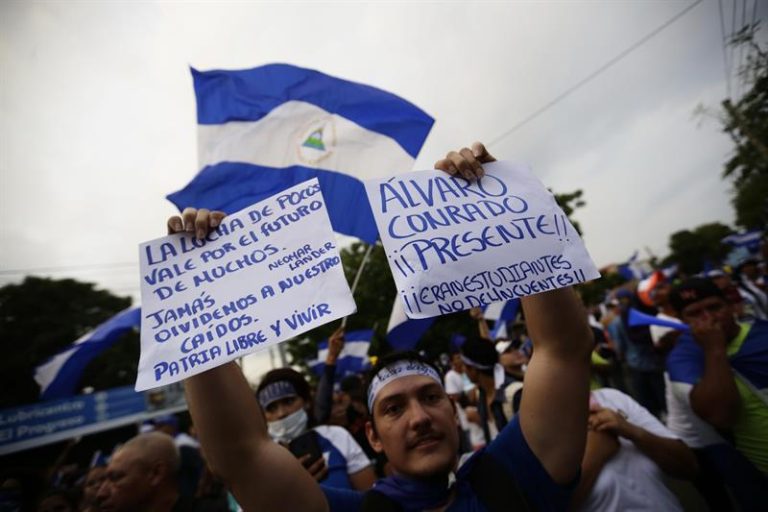25 de junio 2018

Children of Exile: The Births “Sowing Hope” in the Camp of Nicaraguan Farmers

PUBLICIDAD 1M
PUBLICIDAD 4D
PUBLICIDAD 5D
We won’t ever again see the places where the massacres occurred like we used to see them. We won’t think the same.

Young Nicaraguans can never go back to the way we were. We won’t ever again see the places where the massacres occurred in april 2018.
¿I’m waiting for the bus in front of a crime scene. The day is windy, and it looks like it’ll rain soon in Managua. The water from the rainy season will make a clumsy effort to wash clean the blood that’s still there on the other side of the highway. Blood spilled by young Nicaraguans, who were filled with courage and went out to cry for justice, went out to demand a better Nicaragua.
In front of me is the spot where they shot Alvaro Conrado while he was taking water to the demonstrators that Friday, April 20th. Alvaro was 15 and had dreams to fulfill. His blood and his tears are still there, mixed with the dirt and dried leaves of the empty lot that connects the Managua Cathedral with the Engineering University. A crime scene that we should never forget.
Today, Alvaro’s killers are walking around free and asking for dialogue. They insist on remaining in power and plan to go to “the final consequences” to remain on the throne. Alvarito only wanted to better the country where he was born and become a lawyer when he grew up. “It’s Nicaragua, not some piece of garbage,” he said to his friends. Like him, there are more young people who’ve had the possibility of reaching their goals ripped away by the assassins’ bullets. All their promises, their visions.
It’s impossible not to listen in on the talk of people around me. In all of the conversations, they speak of the young people being killed, and of the “shamelessness” of this State that governs us.
The people look at the street in grief, knowing that a short time ago the students who were fighting nearby were sprayed with tear gas, or in the worst cases were killed or taken prisoner and tortured. They’re ashamed of having done nothing.
An old woman won’t stop talking about what happened. She tries to inform people and compare this with what she lived through with Somoza. “This is worse, this guy already knows what a dictatorship is like,” she laments while her eyes fill with tears. She looks toward the empty lot that seems to exude hopelessness and ends, “they were just children – How could he dare?” There’s silence.
There’s also silence in our hearts.
If there’s one thing we should be clear about, it’s that we young people will never be the same. We won’t ever again see the places where the massacre occurred like we used to. We won’t think the same, we won’t act “like we always have.”
We students will return to our classrooms with a hole in our hearts. We’ve lost neighbors, classmates, boyfriends, friends, parents. There’ll be empty seats and full graveyards. We’ve lived through decades in a few short weeks, and we haven’t even reached our mid-twenties.
But today’s wind brings hope. Not long ago, when our greatest worry was passing the finals, we weren’t thinking about the movement that the thirst for justice and the love of country can awaken in us.
Today Managua is full of phrases like: “Long live the students!” “The revolution will be feminist, or it won’t be;” “Corrupt assassins”; and “Daniel must surrender!”
Today the youth aren’t only fighting for themselves, but for those who can’t do it; for the elderly, the dead, the outcasts, those who live in remote areas, the political prisoners, those who have to agree to certain conditions. In every protest they say “the struggle is for all of us” and they make this real.
This bus stop where I am, was a witness to the first of Rosario’s “trees of life” coming down. People joke, saying that every time one falls a person we know gets weaker, but I don’t think so.
With every metal tree that falls, the people get stronger, increase their roar. They say the people united will never be defeated and I believe that. Since April, we’ve been witnesses that this is so.
Archivado como:
PUBLICIDAD 3M
PUBLICIDAD 3D